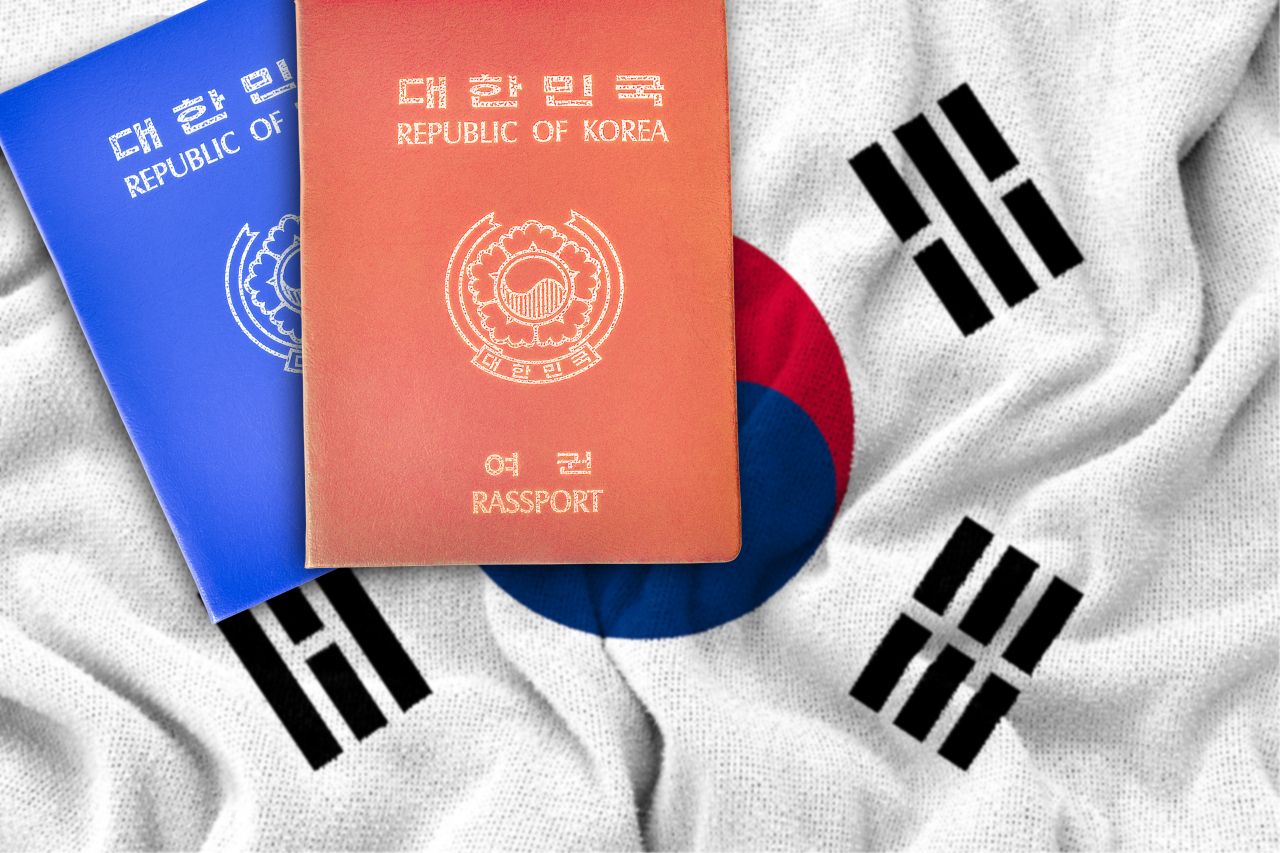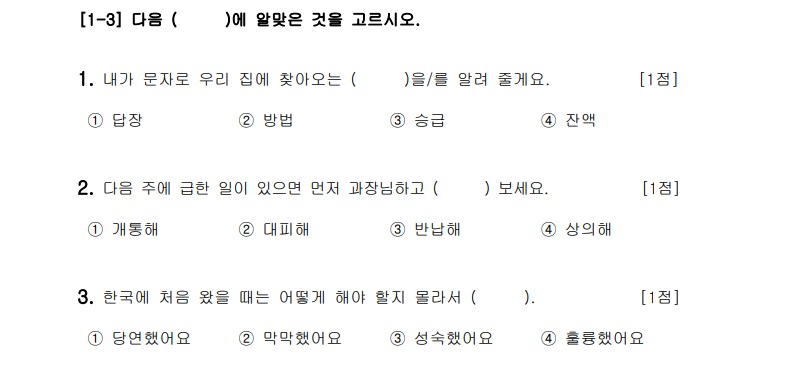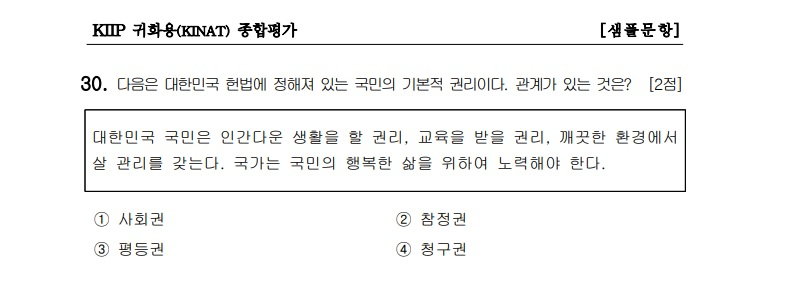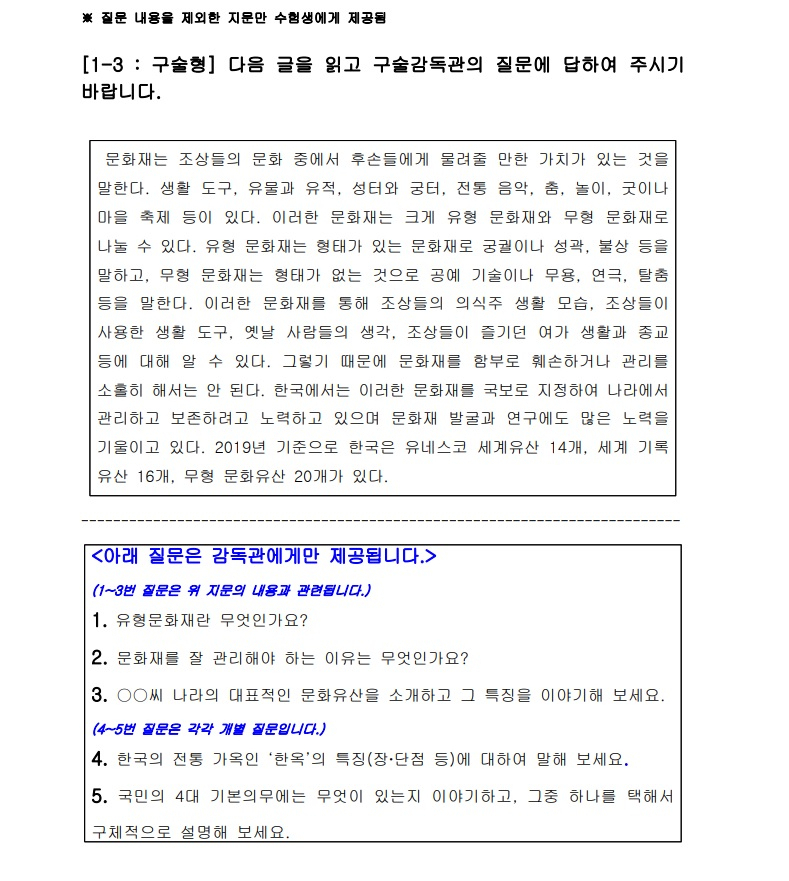To become a naturalized citizen of South Korea, applicants must have a basic knowledge of the Korean language, customs and culture, which is evaluated through a written test and an interview.
The Korea Immigration and Naturalization Aptitude Test comprises of multiple-choice questions, a writing test and an oral test, which must be completed within 60 minutes. To pass, one must score at least 60 points out of 100.
According to the Justice Ministry, Korean children in the fourth to sixth grades should be able to pass the test.
As a Korea Herald reporter and a South Korean citizen of 36 years and counting, I decided to try my hand at the multiple-choice question section of the ministry’s latest sample test posted September 2022. This section accounted for 65 of the 100 total points.

The questions ranged from those requiring linguistic skills to others requiring a basic knowledge of South Korea’s social system. All of the questions were in Korean.
The Korean language section from questions No. 1 to 10, consisted of fill-in-the-blank questions and a section where one has to deduce the correct answer after reading a passage. For example, question No. 1 could roughly be translated to “Let me tell you ( ) to come to my home,” which a person with basic Korean skills could answer.

The next part of the test, about South Korean society and culture, customs and history, was where things got a little bit trickier. Some were questions about a foreigner entering the country needing a valid passport and a visa, and others asked about the period of mandatory education -- six years of elementary school and three years of middle school -- while the more difficult questions involved having to determine whether statements such as “Counter-urbanization phenomenon was most prevalent in the 1970s” were true, which in this case, it was not.
Question No. 21 was the one that ultimately foiled my plan to breeze through the test. It was a question about the traditional customs of the Korean family which are not familiar to many millennials.

In conclusion, I got two two-point questions wrong, resulting in a score of 61 out of 65. While the result may validate my citizenship as a South Korean, failing to ace a supposedly elementary-level test was not very satisfying as a college-educated person.

For those who wish to take a peek at the test, the Ministry of Justice provides sample questions on its Immigration & Social Integration Network webpage. Select the section “alim madang” and the subsection “jaryosil” for access to sample questions and the answers to the multiple-choice questions. For more details about the written exams, including this year’s schedule, visit www.socinet.go.kr.
Outside of the sample questions, other test questions are not publicly available.

Although all three -- general, simple and special -- naturalization processes require one to take the KINAT, some people are exempt from taking the written test or interviews. They include legal minors, ones aged 60 or above, those who completed the Social Integration Programs stated in the Immigration Act, those who have taken the written test within the last three years and scored at least 60 points, and others whom the justice minister has recognized as having suitable reasons for exemption.
Interview exemptions are given to those who are aged 60 or above and are married to a person who had his or her Korean nationality reinstated, those who were 15 or younger at the time of application, those who completed the aforementioned Social Integration Programs and scored 60 points or more in the written test, and others whom the justice minister has recognized as having a suitable reason.
The special process for those who are deemed to have exceptional abilities has the least number of requirements, and are not subject to requirements like a mandated period of residency, as well as a certain level of assets and income. They are also exempt from written tests.
Of course, very few qualify for this since they must be someone who is expected to contribute greatly to the country’s interests through their expertise in fields such as science, economy, culture and sport. It was only in April of 2021 that 200 people got citizenship through this process, 10 years after the system’s introduction in 2011.
In comparison, the number of newly naturalized citizens is around 10,000 people a year.
Survive & Thrive is a series offering a guide to living in South Korea for those born outside of the country. – Ed.





![[KH Explains] How should Korea adjust its trade defenses against Chinese EVs?](http://res.heraldm.com/phpwas/restmb_idxmake.php?idx=645&simg=/content/image/2024/04/15/20240415050562_0.jpg&u=20240415144419)